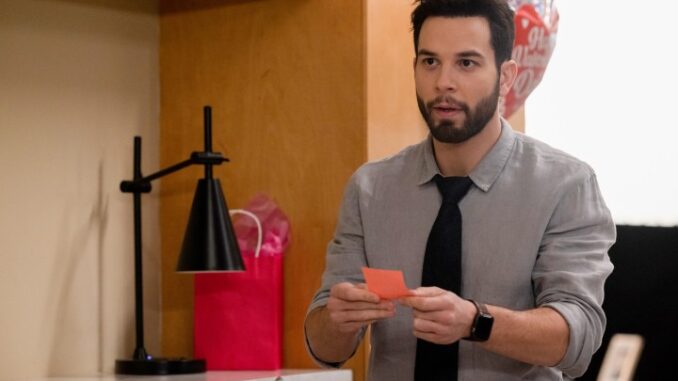
The Sword of Damocles: A So Help Me Todd Actress and the Shadow of Cancellation
The glitter of Hollywood often blinds us to the anxieties lurking beneath. We see the red carpets, the lavish parties, the accolades, but rarely the internal battles waged in the green rooms and the constant, gnawing fear that any wrong step could send it all crashing down. In this precarious landscape, the concept of being “canceled” hangs like the Sword of Damocles, threatening to sever careers with a single misstep. And for one actress on the now-concluded CBS legal dramedy, So Help Me Todd, the relief of wrapping the series without facing her biggest worry – being canceled – is a bittersweet victory indeed.
The fear of cancellation isn't about simply losing a job; it's about the public shaming, the social ostracization, the potential derailment of a lifetime's work. In an era of instant outrage and digital pitchforks, even a seemingly innocuous tweet can spiral into a career-ending conflagration. For actresses, particularly women, the tightrope walk is often even more fraught, navigating the complexities of representation, body image, and societal expectations. They are perpetually under a microscope, judged not just on their performance, but on their personal lives, their political opinions, and even their choice of clothing.
For our fictional actress, let's call her Anya, this fear was particularly potent. So Help Me Todd provided a stable platform, a regular paycheck, and the opportunity to hone her craft. But it also amplified her exposure. Anya, while dedicated to her craft, possessed a fiery spirit and wasn't afraid to speak her mind, both on and off camera. This, in the age of social media, made her a target. She witnessed colleagues and even industry giants felled by controversies, their reputations tarnished beyond repair.
Anya's worry wasn't rooted in a lack of awareness; it stemmed from a genuine desire to be authentic while navigating a minefield of potential offense. She understood the power of her platform and wanted to use it for good, but the fear of misstepping, of inadvertently causing harm, haunted her. Every interview, every public appearance, was a carefully calculated performance, a dance between expressing her genuine self and avoiding the pitfalls of the cancel culture.
The anxiety simmered beneath the surface, impacting her performance at times. The joy of acting was sometimes overshadowed by the constant pressure to be perfect, to be palatable. She found herself second-guessing her opinions, censoring her humor, and retreating into a guarded version of herself. The irony wasn't lost on her: she was an actress, paid to inhabit different characters, yet she felt increasingly imprisoned by the need to maintain a flawless public persona.
The premature cancellation of So Help Me Todd, while disappointing, brought with it a profound sense of relief. The sword of Damocles, which had dangled precariously over her head for two seasons, was finally removed. She had made it. She had wrapped the series without succumbing to her biggest fear.
This isn't to say that she condones or glorifies the concept of cancellation. On the contrary, she believes in second chances, in the importance of forgiveness, and in the power of dialogue. But she also recognizes the fragility of her position, the inherent power imbalance in the industry, and the real-world consequences of online condemnation.
Anya's story, while fictional, resonates with the anxieties of many working in the entertainment industry. It highlights the pressure to conform, the fear of misstepping, and the constant awareness of the potential for professional ruin. While the cancellation of So Help Me Todd may be a professional setback, the relief of avoiding her biggest worry allows Anya to move forward, perhaps with a renewed sense of purpose and a slightly less burdened spirit. She can now explore new avenues, new roles, and new ways to express herself, hopefully in a world that is becoming more forgiving and understanding, a world where the sword of Damocles doesn't hang quite so low. The end of the series marks not just the closure of a chapter, but the beginning of a new one, one where Anya can finally breathe a little easier and perhaps, even find her voice again.
